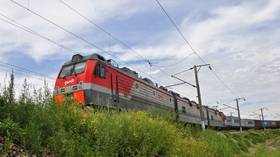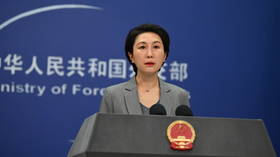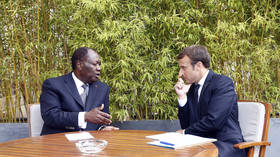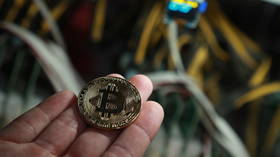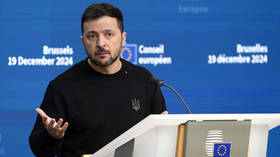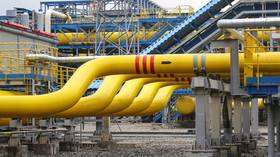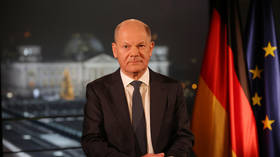Russian exclave exhausts EU’s goods transit limits
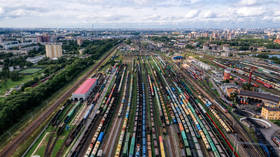
EU sanctions, regulating the quantity of goods that can be delivered from mainland Russia to Kaliningrad, are preventing the exclave from receiving all the items it needs, the local governor said on Tuesday.
“Today we have exhausted the EU limits on transportation of some types of cargo, for example, certain types of iron, steel, oil and oil products, fertilizers, antifreeze and timber,” Anton Alikhanov was quoted by RBC news agency as saying at the Valdai Discussion Club.
According to the governor, the scope of goods that the region needs is “fairly large,” but it “already has no opportunities because of the established quotas.”
In mid-June, Lithuania restricted the transit of goods from mainland Russia to Kaliningrad by rail, citing EU sanctions. The ban includes construction materials, metals, wood, cement, fertilizers, and alcohol, and has been condemned by Moscow as illegal.
In July, the European Commission issued guidance explaining that while road transit to Kalingrad is banned, rail cargo can continue, with quantity limits imposed on each category of goods. Lithuania is required to check whether transit volumes correlate with the average of the past three years, to detect “unusual flows or trade patterns which could give rise to circumvention.”
Russian authorities welcomed the EU clarification, as it allowed transit to be restored, but noted that there are still “certain questions” and “there is a lot of work to do.”
In his speech on Monday, Alihanov also suggested increasing cargo deliveries to Kaliningrad by sea, to ease the exclave’s dependence on goods transit by land.
“If we take the average volume of traffic over the past few years, we need about 22 ships... This would untie our hands in order to take possible retaliatory measures against the Baltic States and the way they behave in relation to the Kaliningrad region,” the governor said. He noted that eight ferries are already in operation, and one more vessel is expected to be commissioned in the near future.
In late June, Lithuania’s Siauliai Bank, which processed transactions linked with Russian goods transit, announced that it would stop facilitating transactions in rubles starting from August 15, and from September 1 would no longer conduct any banking transactions with Russia or Belarus.
While Moscow urged for dialogue to solve the problem, Vilnius said the matter was within the bank’s jurisdiction and the government could not force it to change its stance.
For more stories on economy & finance visit RT's business section
